I didn’t need a reminder that I am thirty-nine years old, but spending the previous day on buses gave me one anyways. I woke up, and my hips were sore, my back was sore. My head and stomach were sore from midnight hotdogs and aquardiente. I was mentally and physically drained. I did some half-assed yoga to try and get my body going, and got out the door at 10am. I found a market with cans of Diet Coke and bought two. I’m a coffee drinker, and addicted to soda, but I haven’t had much of either in the last eight weeks. Most of my hotels, if they had coffee at all, served Nescafe with heaps of sugar, and it was difficult to find diet soda. I don’t know if it was the caffiene, or the carbonated beverage, but it woke me up and lifted my mood.
In longform travel, sometimes it can be the little things. I was ready to go. My legs still heavy, I went off the scout the bus station, so I’d be ready tomorrow. Santa Rosa was a hilly town, enough to make San Francisco or Seattle look flat in comparison. The air was scented evergreen, lifting my mood further. The bus station was too far to walk, out on the highway, but that was fine, a cab woiuld be about a dollar. I headed back into town. For a college town, it didn’t have the energy of Esteli. There was a lot of traffic. Crossing the street was a challenge. There aren’t many stop signs in Central America, or stoplights. You approach an intersection blindly, the buildings blocking your view, and you honk to let cross traffic know you are coming. Somehow, this seems to work. I haven’t seen any accidents so far. Santa Rosa felt a lot like Suchitoto, El Salvador, but at least it felt like people lived and worked there. It was a decent enough place for a stopover, but I didn’t feel any wish to spend more time there. 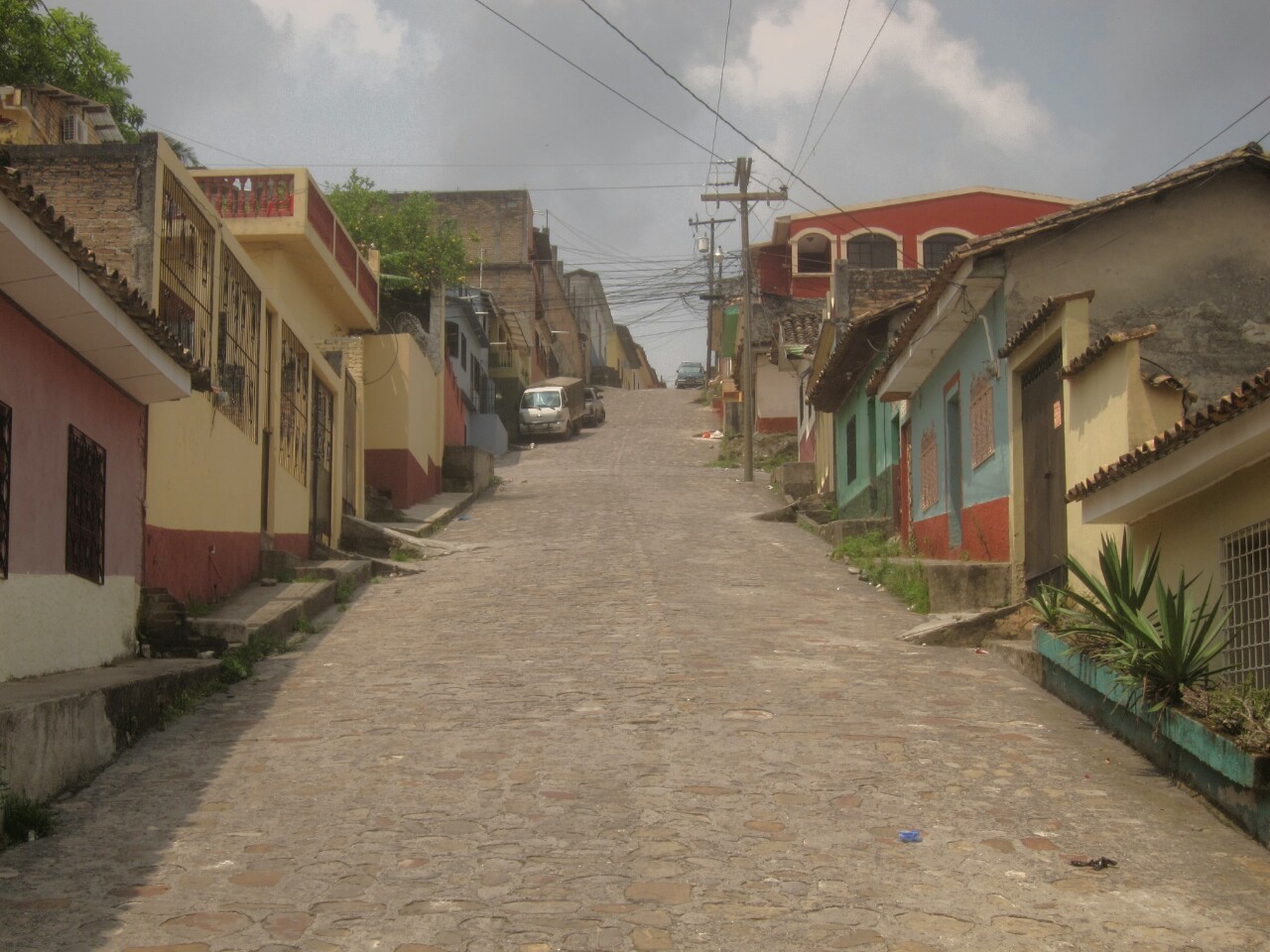
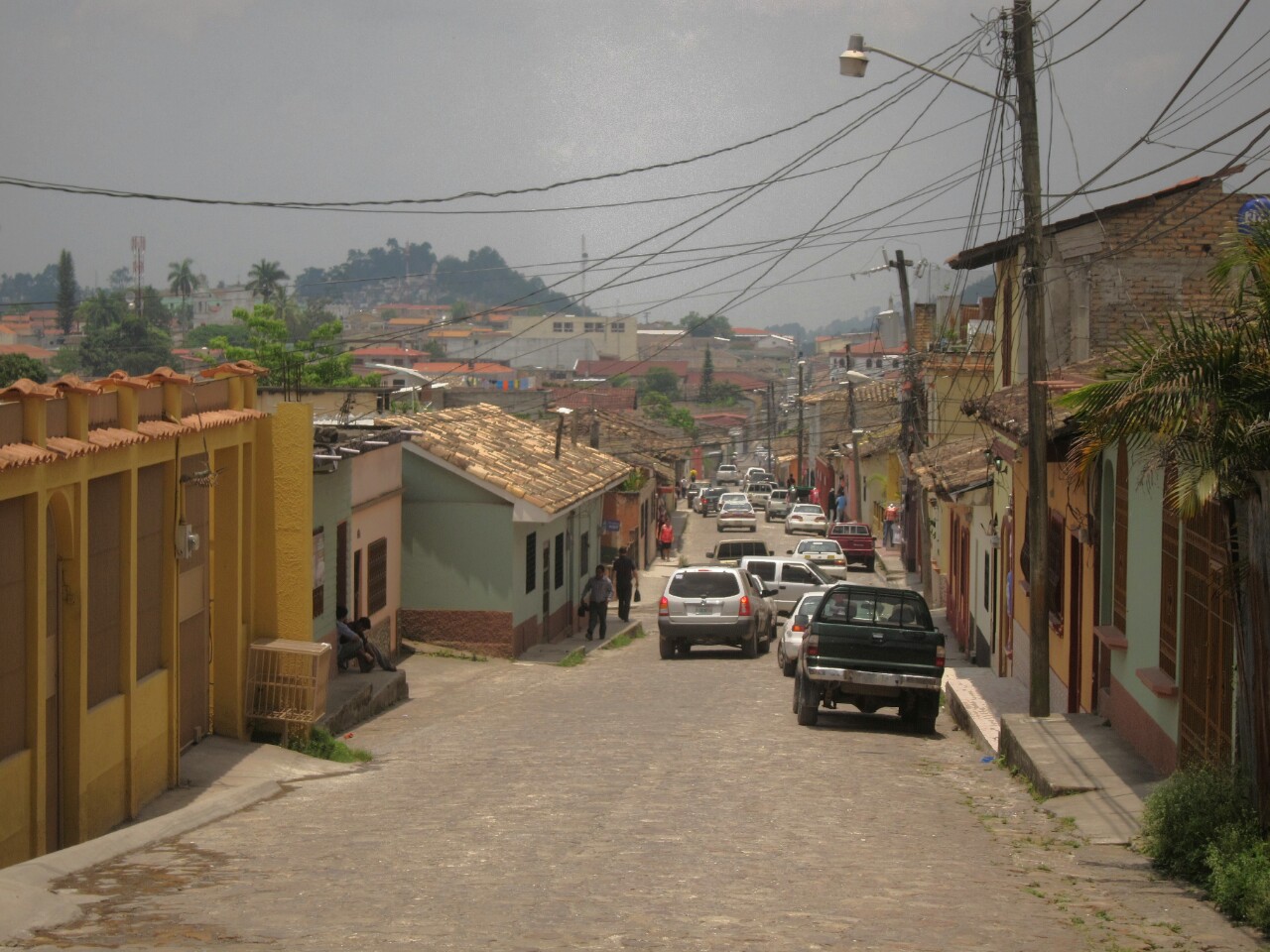
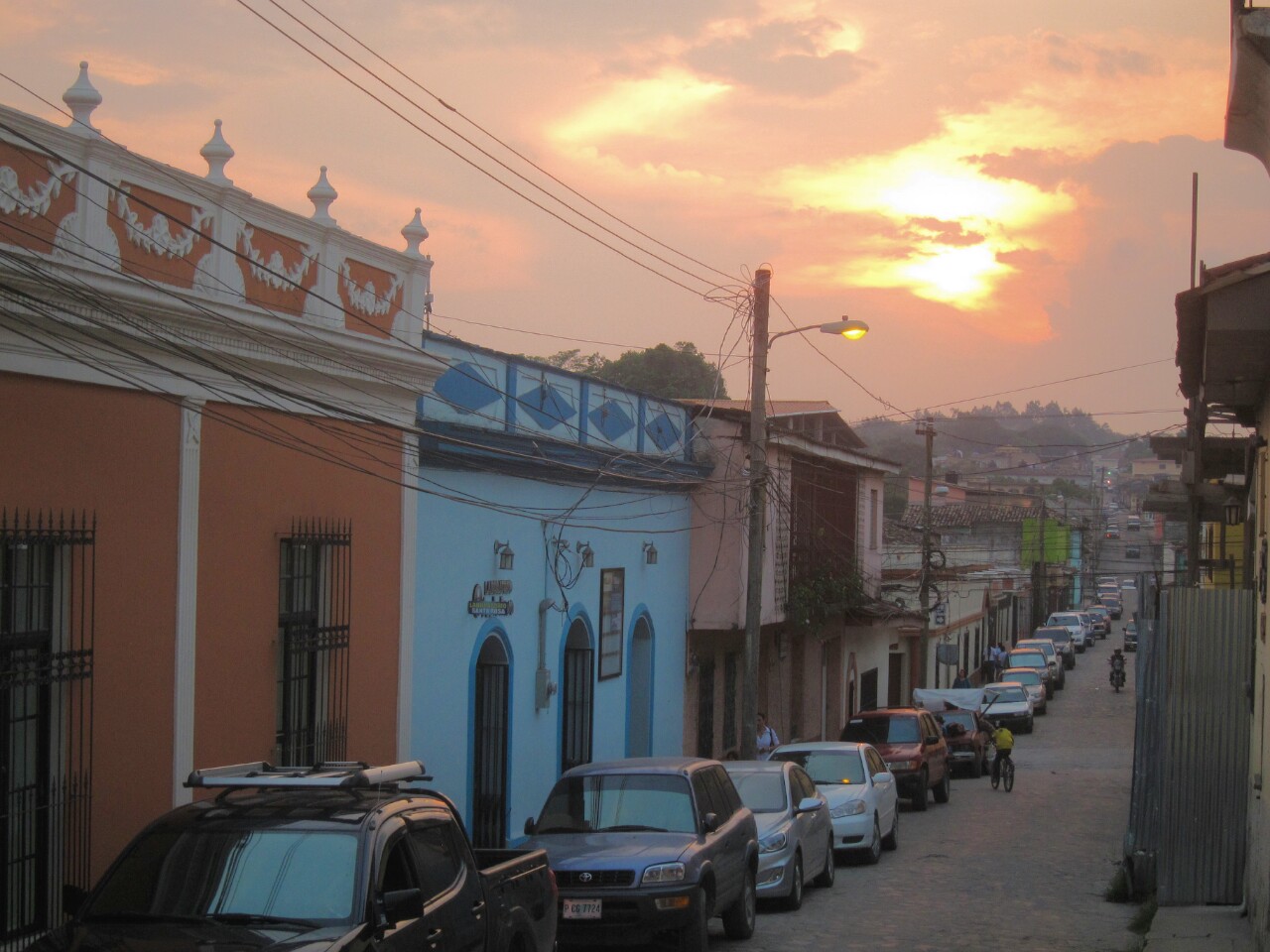
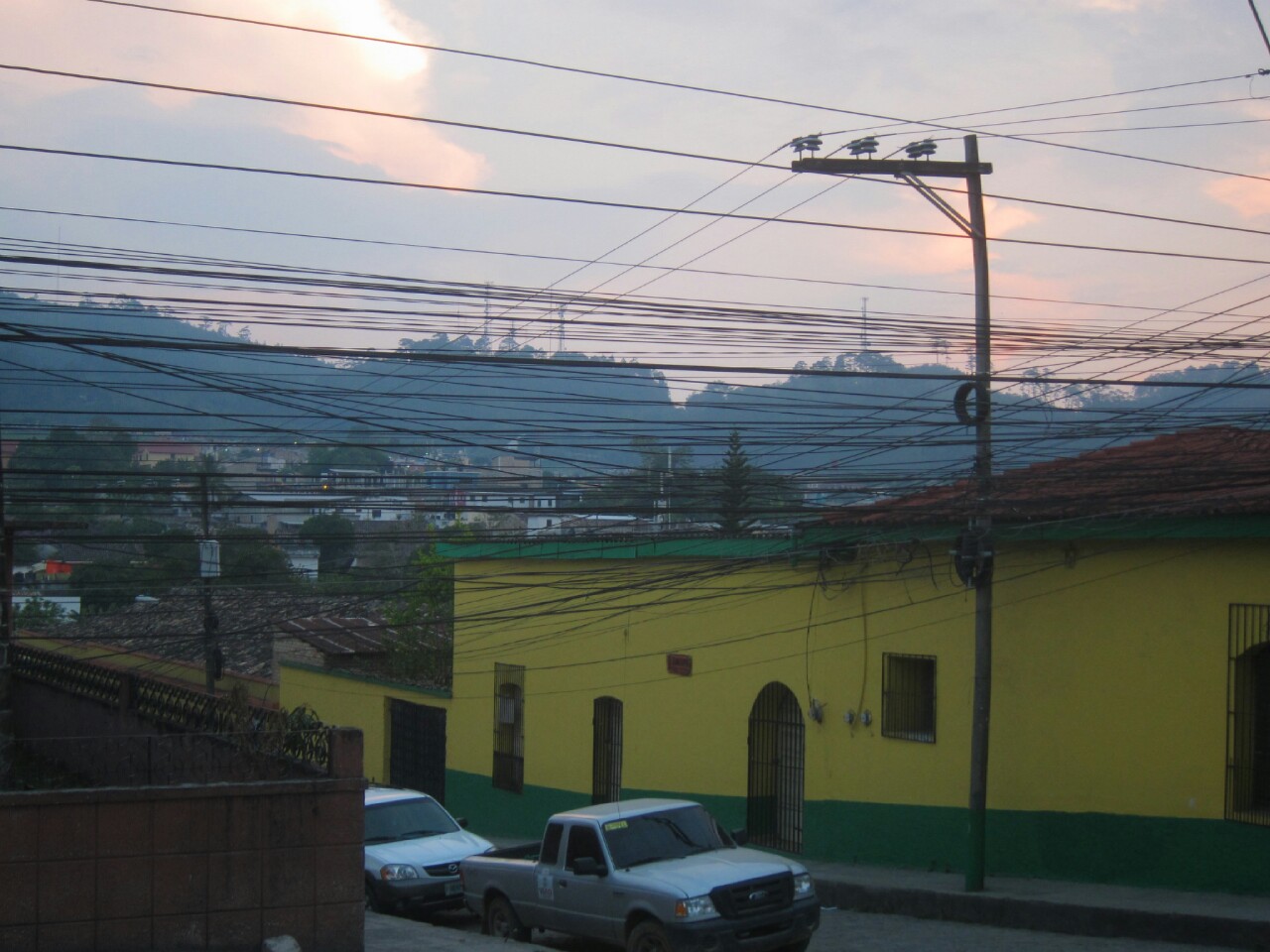
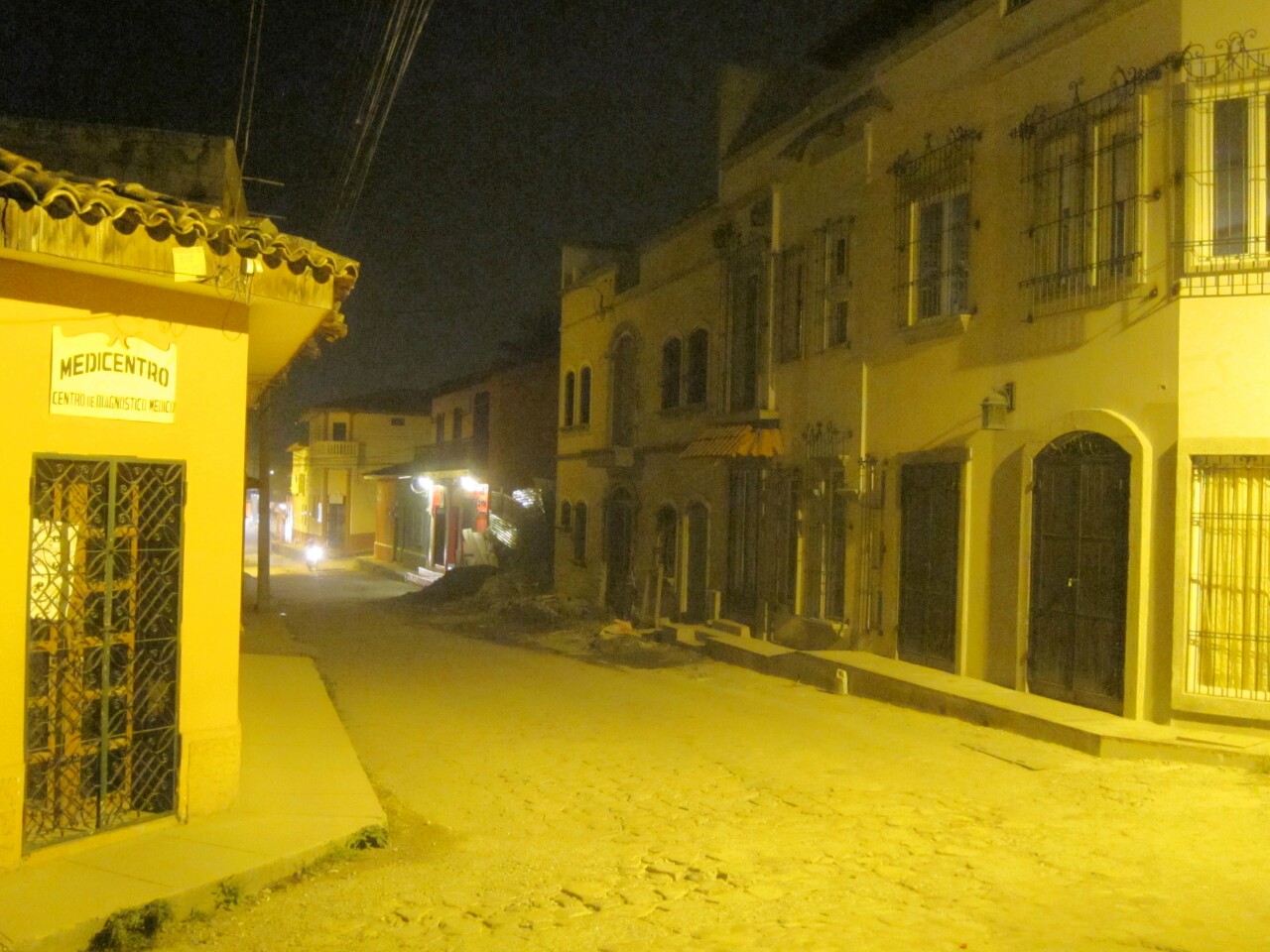 The next day, it was a bus to Gracias. I flagged a taxi at the central park. He already had a passenger, an older man. Taxis in CA are collectivos. They’ll pick up and drop off anybody along the way. There are no meters, fares are either set or negotiable. You tell the driver where you are going, and if it’s along the way to where his other passengers are going, or not too far out of the way after he drops them, he’ll take you. We dropped the old man, and the driver had asked me where I was going, so he could drop me directly in front of the bus I needed to take. The car had barely stopped when an ayudante approached, asked me if I was going to Gracias, and when I said yes, took my pack from my hands and led me to the bus, There were two buses going to Gracias, along with collectivo minivans, and he wanted me on his. I sat on the bus and watched this play out over and again as people showed up in taxis. The road to Gracias went up and through the mountains. A river ran through a valley. Mountains framed mountains. I was sitting in the wheel well seat, as is my curse. An hour and a half later, I was walking down the highway looking for my hotel. I could’ve taken a tuk-tuk, but it looked straightforward on the map. Fifteen minutes of walking proved otherwise, so I turned around and headed back to the bus station. A man, in dirty, ragged clothes, saw me and my backpack and asked me where I was going. I told him I was going to Hotel Guancascos, and he told me it wasn’t far, and gestured the direction. I told him I was waiting for a taxi, so he hailed one for me. He didn’t want anything but to help me get where I was going. It was just one of many acts of kindness I’ve experienced so far. Guancascos had a room, on the top floor, with terrace overlooking Gracias. I was two for two with hotels so far in Honduras, and they both took credit cards. I was really liking Honduras.
The next day, it was a bus to Gracias. I flagged a taxi at the central park. He already had a passenger, an older man. Taxis in CA are collectivos. They’ll pick up and drop off anybody along the way. There are no meters, fares are either set or negotiable. You tell the driver where you are going, and if it’s along the way to where his other passengers are going, or not too far out of the way after he drops them, he’ll take you. We dropped the old man, and the driver had asked me where I was going, so he could drop me directly in front of the bus I needed to take. The car had barely stopped when an ayudante approached, asked me if I was going to Gracias, and when I said yes, took my pack from my hands and led me to the bus, There were two buses going to Gracias, along with collectivo minivans, and he wanted me on his. I sat on the bus and watched this play out over and again as people showed up in taxis. The road to Gracias went up and through the mountains. A river ran through a valley. Mountains framed mountains. I was sitting in the wheel well seat, as is my curse. An hour and a half later, I was walking down the highway looking for my hotel. I could’ve taken a tuk-tuk, but it looked straightforward on the map. Fifteen minutes of walking proved otherwise, so I turned around and headed back to the bus station. A man, in dirty, ragged clothes, saw me and my backpack and asked me where I was going. I told him I was going to Hotel Guancascos, and he told me it wasn’t far, and gestured the direction. I told him I was waiting for a taxi, so he hailed one for me. He didn’t want anything but to help me get where I was going. It was just one of many acts of kindness I’ve experienced so far. Guancascos had a room, on the top floor, with terrace overlooking Gracias. I was two for two with hotels so far in Honduras, and they both took credit cards. I was really liking Honduras. 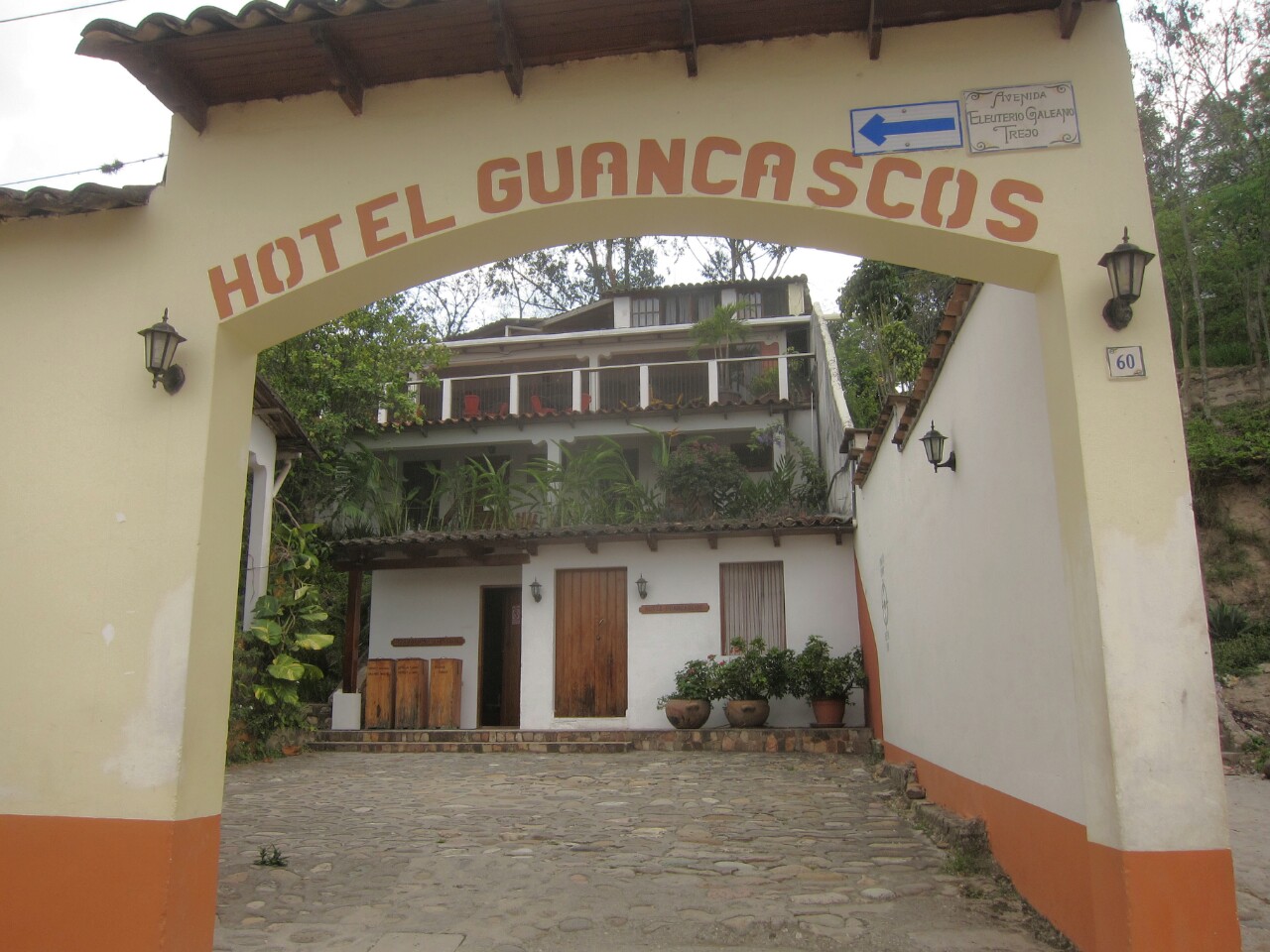
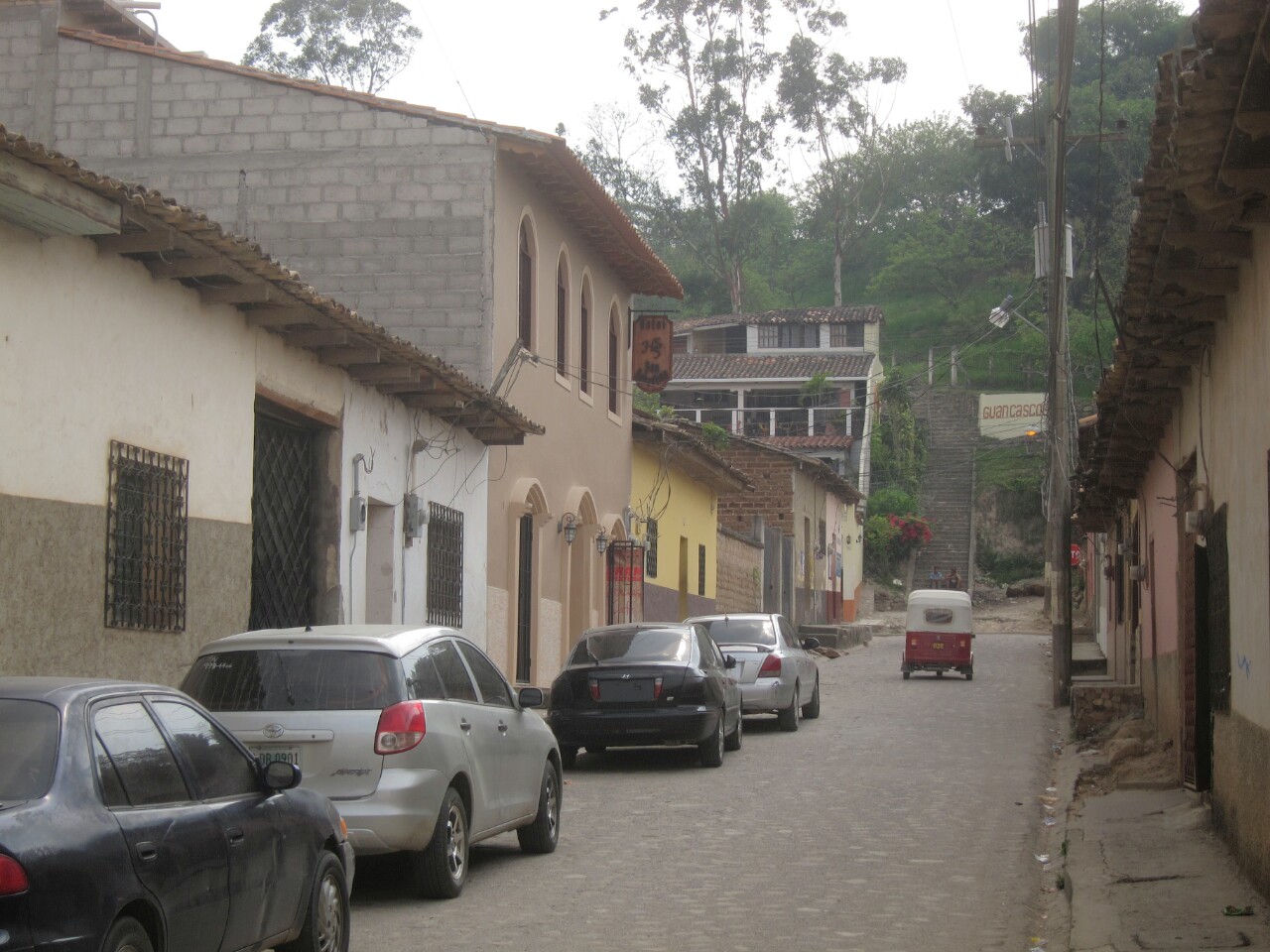 I walked down to the Central Park to find lunch and a bank. I needed cash, so I went to the ATM and then stood fifteen minutes in line to change to big bills for smaller bills so people didn’t make a face at me when I tried to pay for things. Another colonial town, briefly at one time the capital of Central America, with pretty buildings and cobbled streets, surrounded by mountains.
I walked down to the Central Park to find lunch and a bank. I needed cash, so I went to the ATM and then stood fifteen minutes in line to change to big bills for smaller bills so people didn’t make a face at me when I tried to pay for things. Another colonial town, briefly at one time the capital of Central America, with pretty buildings and cobbled streets, surrounded by mountains. 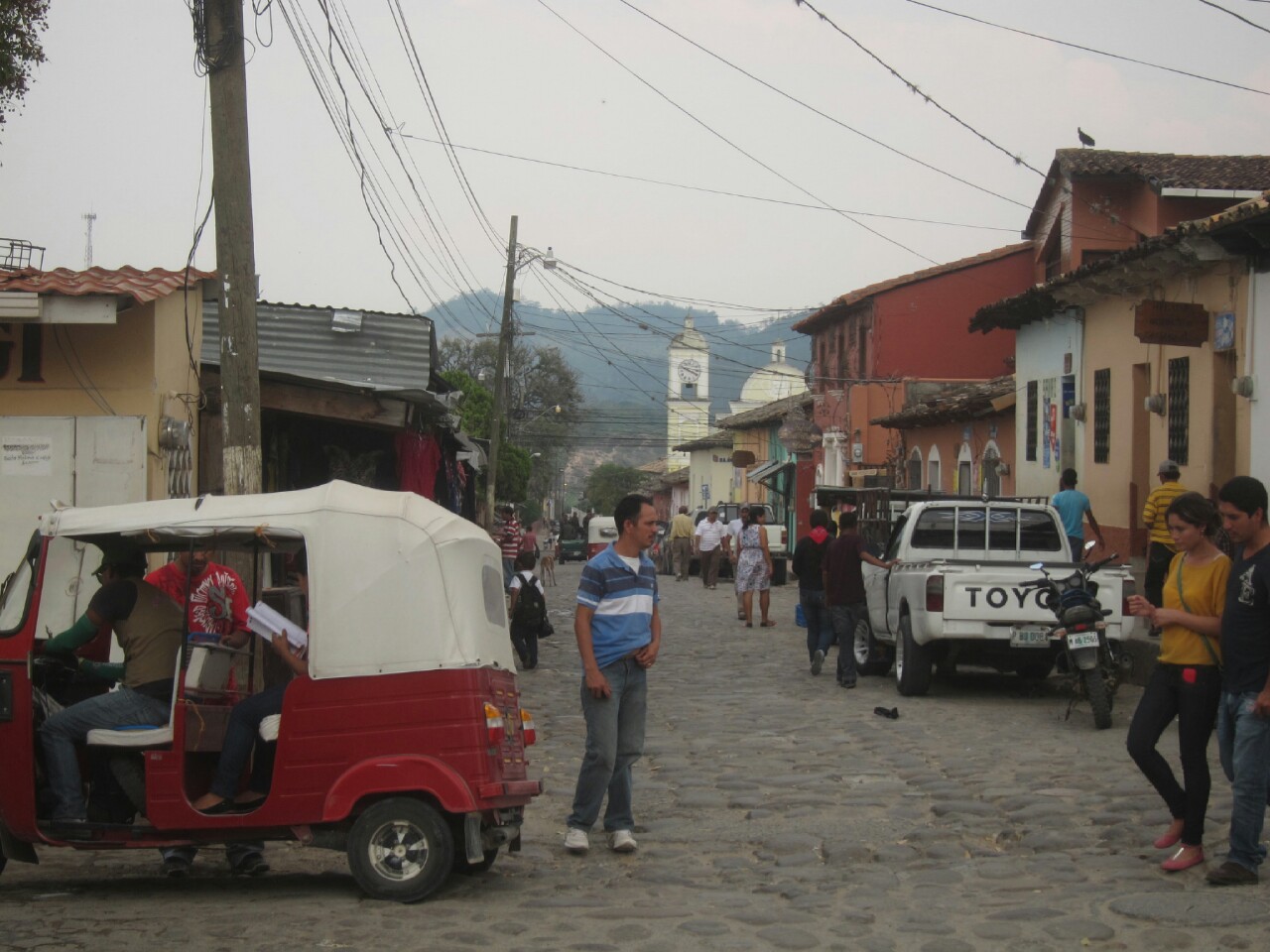 This one lacked the overwhelming traffic of Santa Rosa, and had the pleasant feel of a prosperous working city. In the evening, in the Central Park, my favorite time anywhere, I watched kids go home from school and the fritangas set up their tents and grills and plastic tables with plastif linens on the edge of the square. A man squatted and swung a machete low over the ground, trimming the crab grass that sprouted between the cobblestones. Every few minutes he stopped to hone the edge of his blade. A runner sat on a bench and massaged his calves in preparation and children passed through in school uniforms.
This one lacked the overwhelming traffic of Santa Rosa, and had the pleasant feel of a prosperous working city. In the evening, in the Central Park, my favorite time anywhere, I watched kids go home from school and the fritangas set up their tents and grills and plastic tables with plastif linens on the edge of the square. A man squatted and swung a machete low over the ground, trimming the crab grass that sprouted between the cobblestones. Every few minutes he stopped to hone the edge of his blade. A runner sat on a bench and massaged his calves in preparation and children passed through in school uniforms. 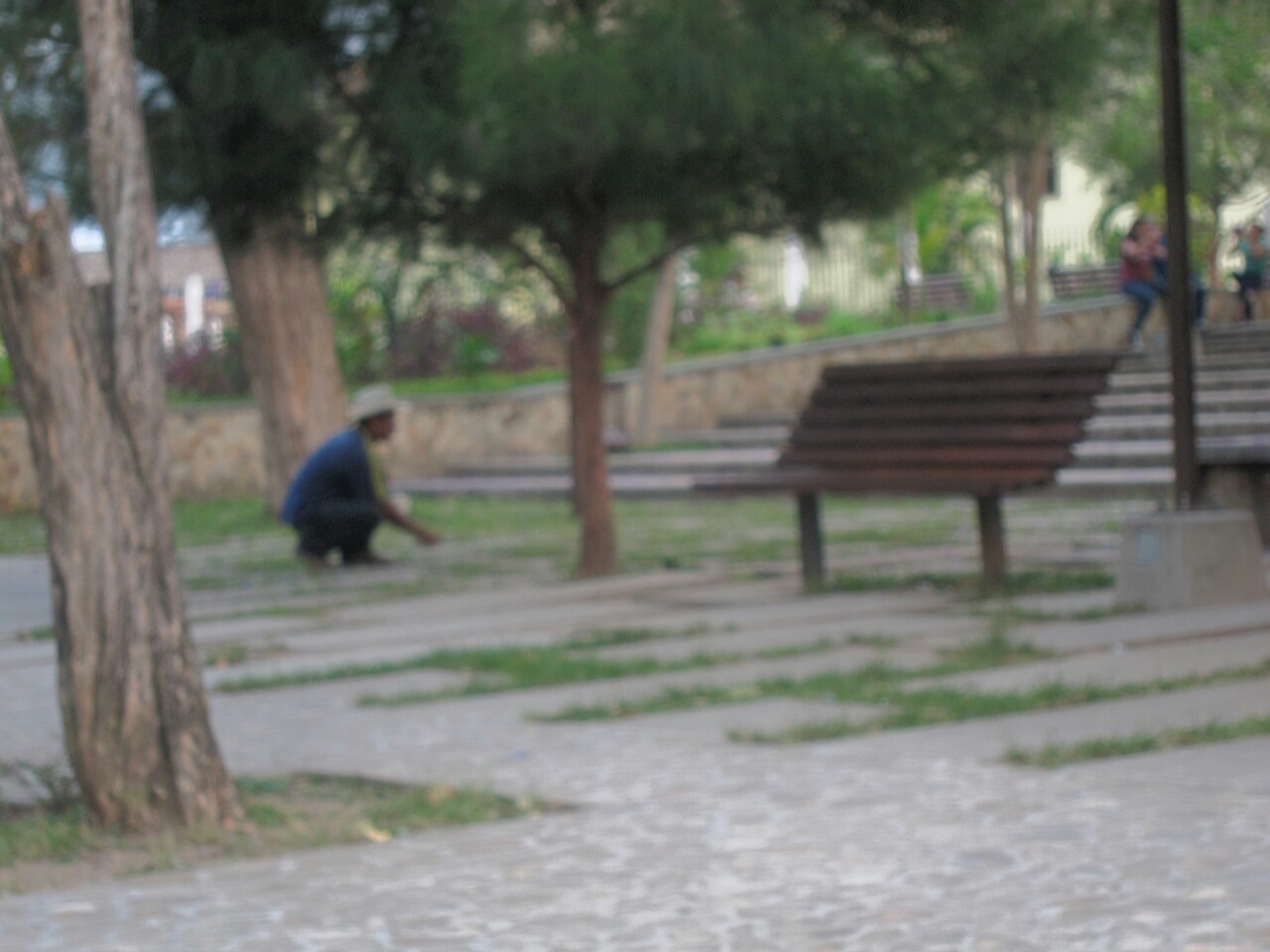
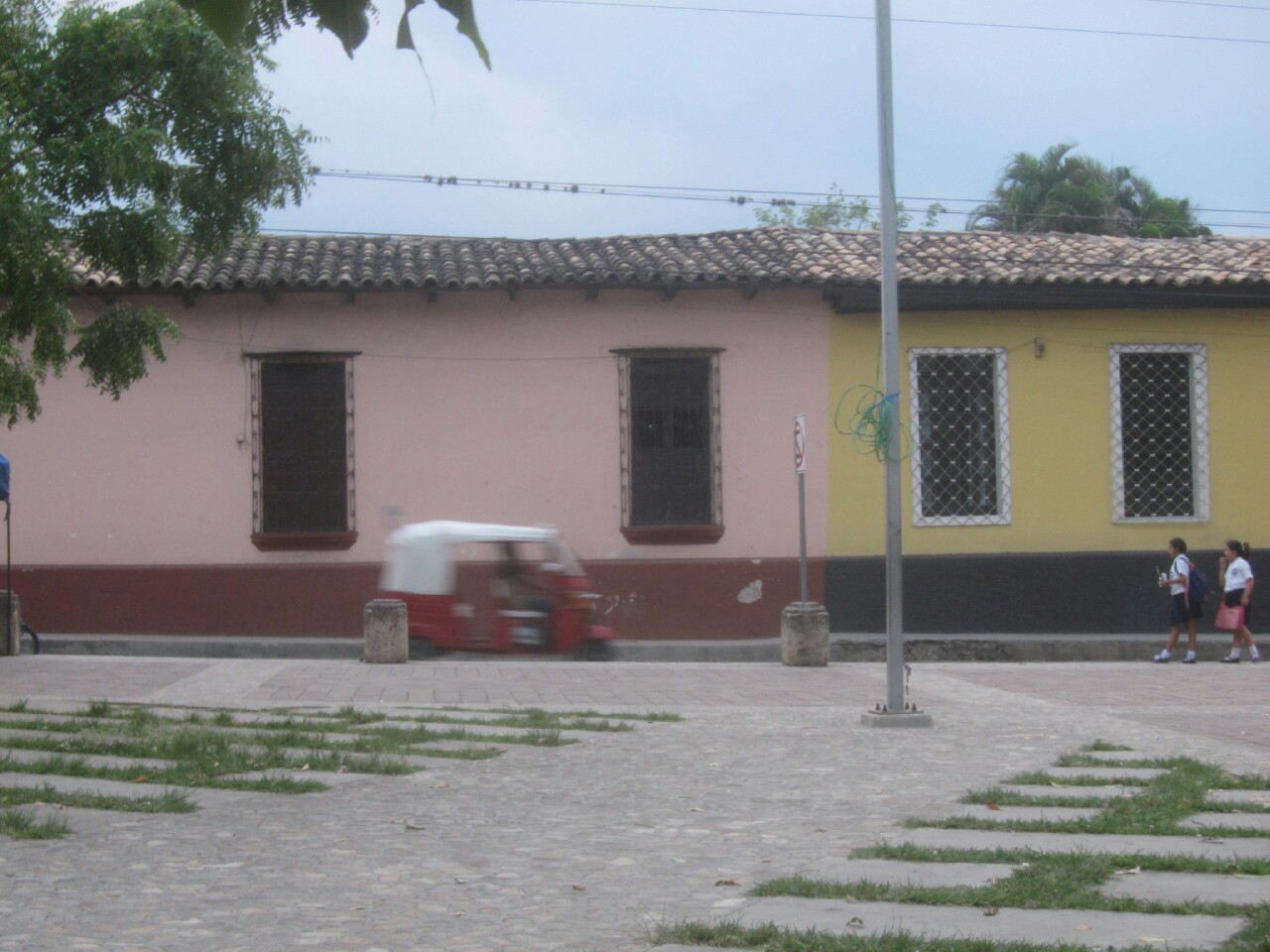 I had dinner at the hotel restaurant, a philly steak sandwich, Honduran style. I’d lately started eating more American food, after weeks of pupusas, plaintains, rice and beans and grilled meats. The moon was full and orange until it disappeared behind the clouds. A group of Christian missionaries from Alabama sat at the next tables and discussed their plans for the next day. I found it odd, missionaries in a deeply religious country where people attended church every day of the week, but I guessed it’s not that you believe in God, but how you believe in God that matters, and Central Americans are largely Catholic, and these people were some form of Protestant. One of the young women was annoyed that one of her football playing friend had chosen Auburn over Alabama, and her friend told her she should just be happy he was using the talent that God gave him. I went upstairs and smoked a cigar on the terrace.
I had dinner at the hotel restaurant, a philly steak sandwich, Honduran style. I’d lately started eating more American food, after weeks of pupusas, plaintains, rice and beans and grilled meats. The moon was full and orange until it disappeared behind the clouds. A group of Christian missionaries from Alabama sat at the next tables and discussed their plans for the next day. I found it odd, missionaries in a deeply religious country where people attended church every day of the week, but I guessed it’s not that you believe in God, but how you believe in God that matters, and Central Americans are largely Catholic, and these people were some form of Protestant. One of the young women was annoyed that one of her football playing friend had chosen Auburn over Alabama, and her friend told her she should just be happy he was using the talent that God gave him. I went upstairs and smoked a cigar on the terrace. 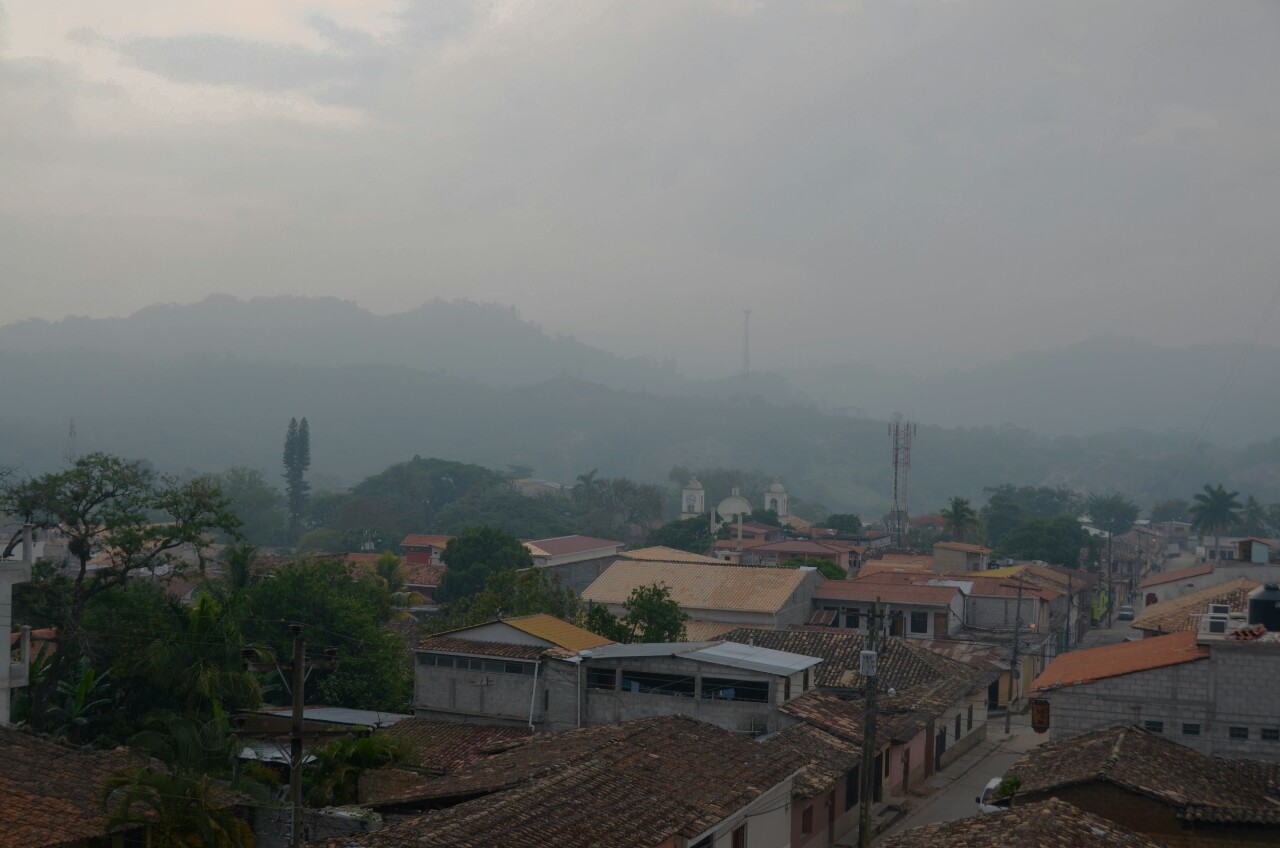 I went to the hot springs the next day, an hour walk outside of town. I was a bit nervous, as Honduras doesn’t have a reputation for safety, but I did as I do in these situations, packed my four-year-old camera and just enough money to pay for my entry and figured the worst that would happen is that I might return to my hote, minus bo
I went to the hot springs the next day, an hour walk outside of town. I was a bit nervous, as Honduras doesn’t have a reputation for safety, but I did as I do in these situations, packed my four-year-old camera and just enough money to pay for my entry and figured the worst that would happen is that I might return to my hote, minus bo
th. Tuk-tuks beeped and slowed as they passed me but I waved them along. It was a pleasant walk in the mountains. 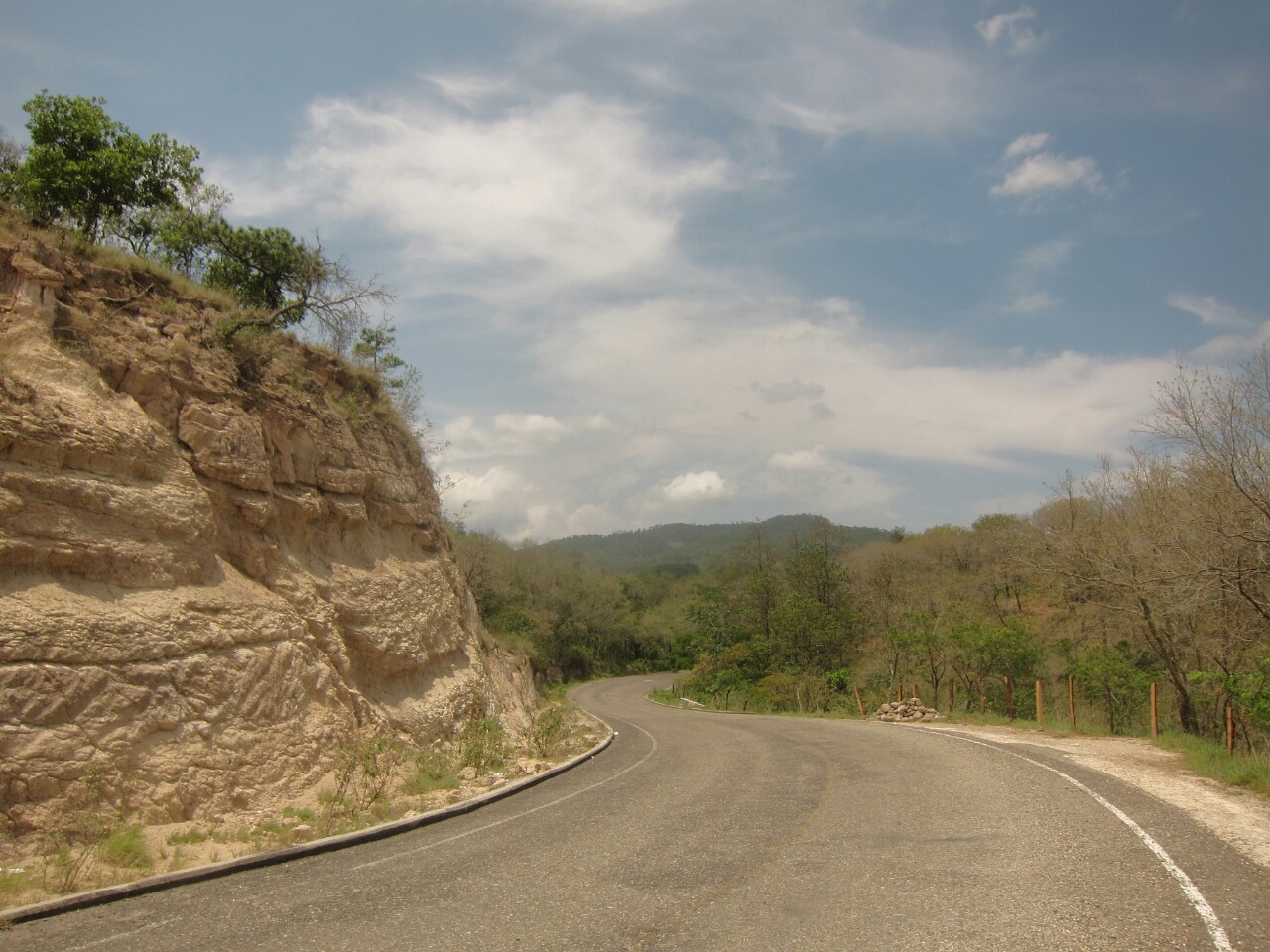
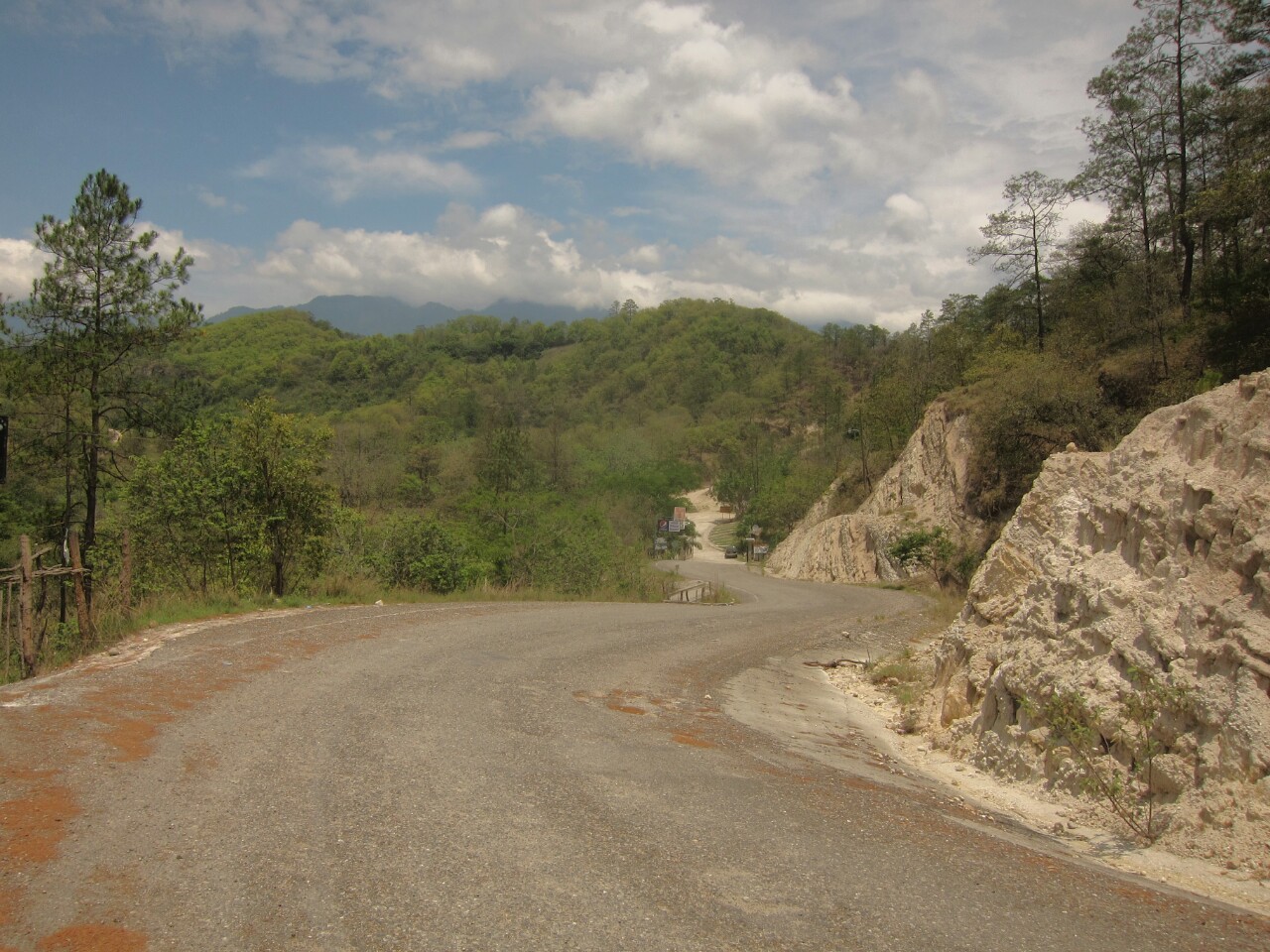 Large grasshopper looking bugs flitted away at my approach or lay squashed in the road by passing traffic. At the baths, I was alone but for one other man on a Tuesday morning. The pools were hot, the water aquamarine and shaded by trees. I did laps, floated on my back, watched the sun through the leaves, hoped the passing clouds would drop some rain, but they never did. I left after an hour and walked back, refreshed.
Large grasshopper looking bugs flitted away at my approach or lay squashed in the road by passing traffic. At the baths, I was alone but for one other man on a Tuesday morning. The pools were hot, the water aquamarine and shaded by trees. I did laps, floated on my back, watched the sun through the leaves, hoped the passing clouds would drop some rain, but they never did. I left after an hour and walked back, refreshed. 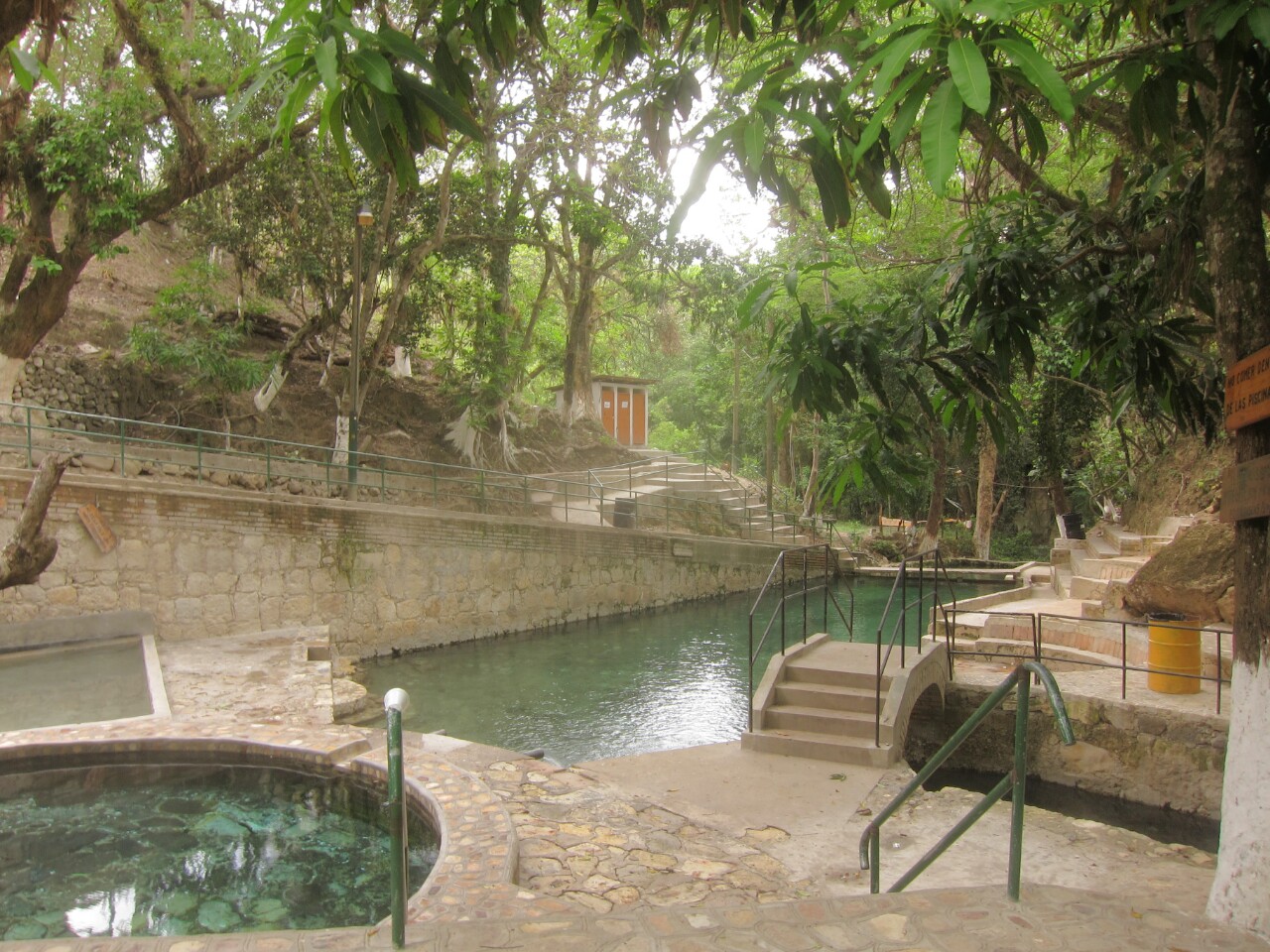
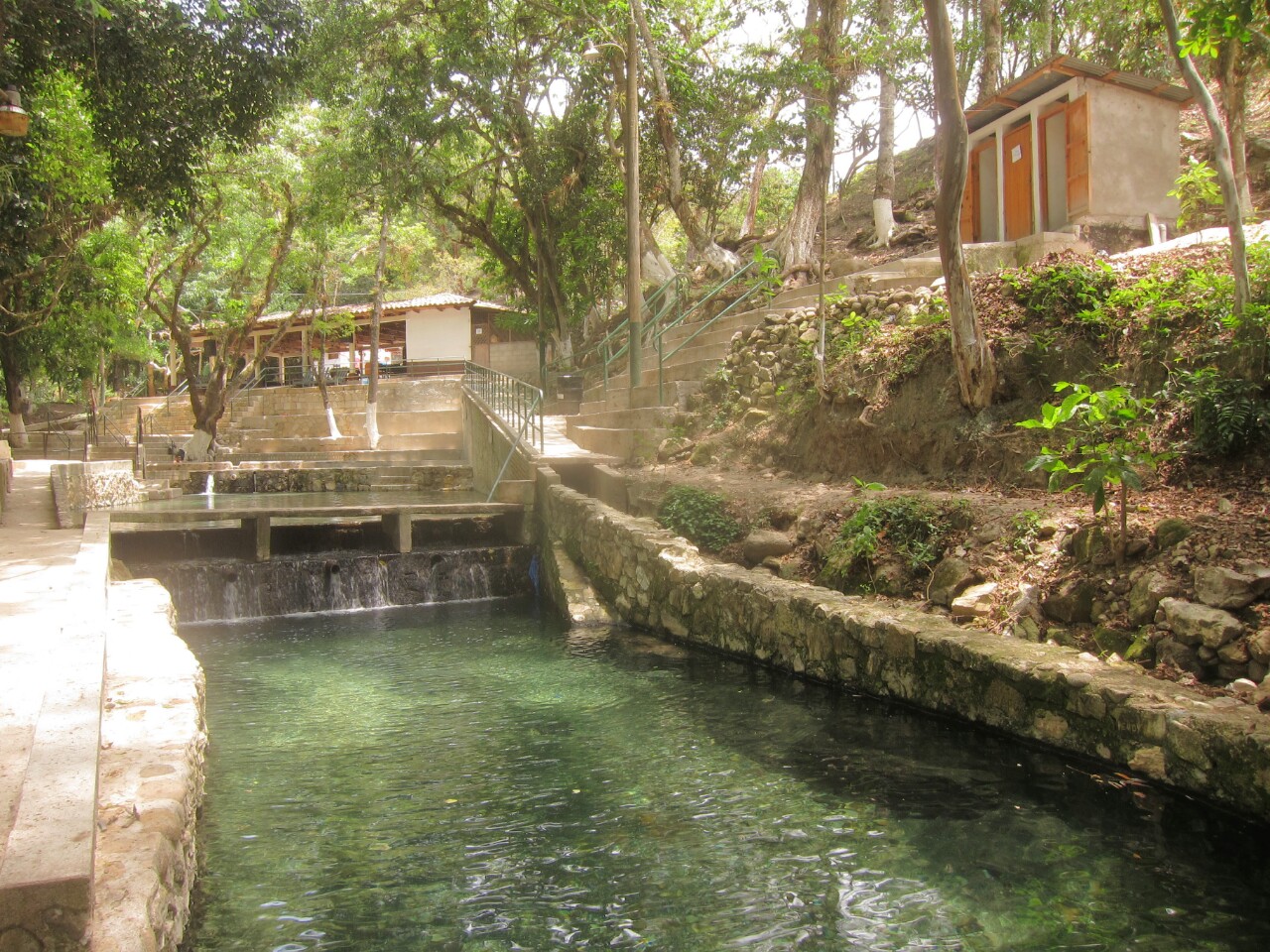
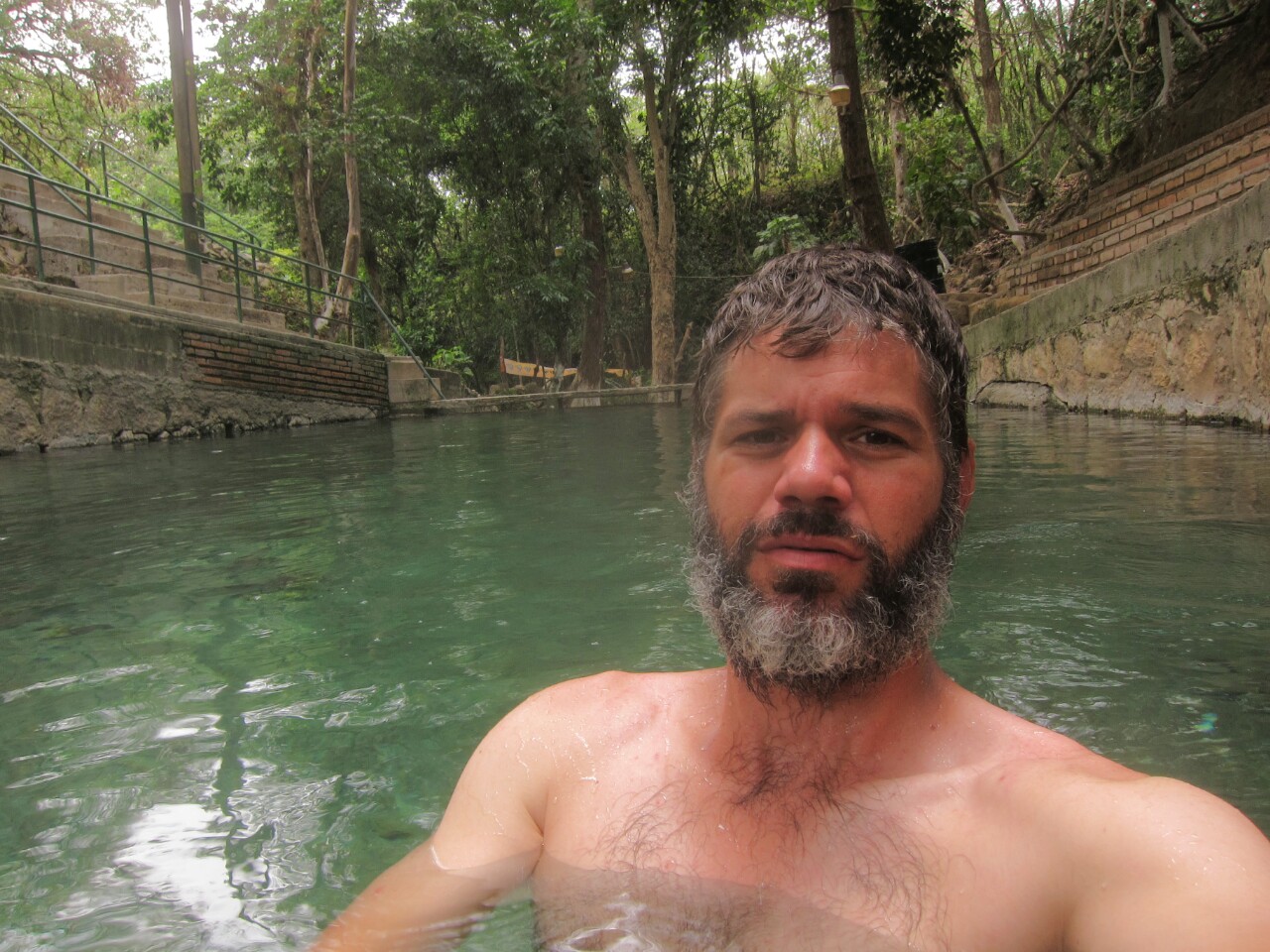 I had intended to do another hike, but I was so refreshed that I passed out on the bed for an hour. After seven weeks of buses and movement, the travel was starting to catch up with me. Also something I’d eaten or drank had also given me a case of ‘travellers stomach’ which meant waking up at 4am for three straight days with stomach cramps and running to the bathroom. I could’ve spent more time in the Lencan Highlands, but my time was running down. The next morning, it was time to move on the Copan.
I had intended to do another hike, but I was so refreshed that I passed out on the bed for an hour. After seven weeks of buses and movement, the travel was starting to catch up with me. Also something I’d eaten or drank had also given me a case of ‘travellers stomach’ which meant waking up at 4am for three straight days with stomach cramps and running to the bathroom. I could’ve spent more time in the Lencan Highlands, but my time was running down. The next morning, it was time to move on the Copan.
